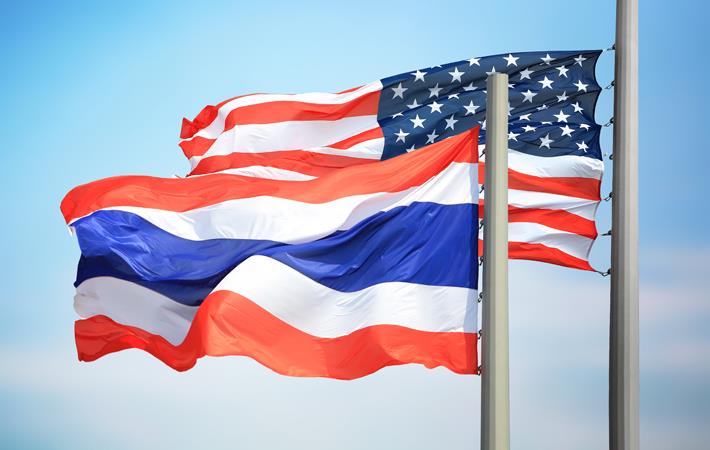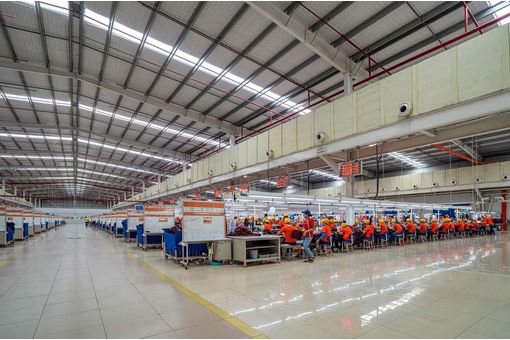Interviews
News Flash
US GSP loss by Thailand credit-negative: Moody's
06 Nov '19
3 min read

Pic: Shutterstock
The office of the US Trade Representative (USTR) announced last month the United States is suspending $1.3 billion in trade preferences for Thailand under the generalised system of preferences (GSP) due to its failure to adequately provide worker rights. This loss of privileges is credit-negative amid a challenging external environment, said Moody's Investors Service.
Despite six years of engagement, Thailand has yet to take steps to provide internationally-recognised worker rights in a number of important areas identified in a 2015 petition from the American Federation of Labour and Congress of Industrial Organisations (AFL-CIO), such as providing protections for freedom of association and collective bargaining.
GSP eligibility for Thailand will be revoked effective April 25 next year for approximately one-third of Thailand’s GSP trade, which totalled $4.4 billion in 2018, USTR said in a press release.
Trade preferences for 573 categories of Thai exports would be suspended, and these could face import tariffs of up to 5 per cent relative to their current duty-free status.
"The development is credit-negative because Thailand's export-oriented economy is in a difficult external environment given that a broad-based export slowdown and strong baht are weakening the competitiveness of shippers and the country's tourism industry," said Moody's in a statement.
"However, the removal of trade preferences alone is unlikely to weaken Thailand's GDP [gross domestic product] or export performance in 2020 because the GSP privileges apply to a relatively small subset of exports and recently announced stimulus measures will support domestic demand in the coming quarters as external conditions remain subdued," the credit rating agency said.
Exports account for around half of Thailand's GDP and the United States is its second largest export partner after China.
The effect of potentially higher tariffs on this subset of exports will be minor because it only accounts for 5 per cent of total Thai exports to the United States, said Moody's.
A higher import tariff of 4.5 per cent on an average would reduce exports to the United States by around $30 million, according to the Thai government's preliminary estimates, equivalent to just 0.1 per cent of total exports to the United States and 0.01 per cent of total Thai merchandise exports.
Thailand's merchandise exports contracted by 2.1 per cent year-on-year in the first nine months of 2019 after growing by 8.6 per cent in the same period in 2018.
"The contraction reflects the direct effect of trade tension between the US and China, the slowdown in the global electronics cycle given Thai exporters' integration in regional electronics supply chains, and overall weaker global growth," said Moody's.
"In addition to promptly initiating such talks, we expect the government to implement policy measures to soften any effect on exports to the US, including promoting such exports ahead of the April 2020 deadline and accessing other markets for adversely affected products," said Moody's.
Despite six years of engagement, Thailand has yet to take steps to provide internationally-recognised worker rights in a number of important areas identified in a 2015 petition from the American Federation of Labour and Congress of Industrial Organisations (AFL-CIO), such as providing protections for freedom of association and collective bargaining.
GSP eligibility for Thailand will be revoked effective April 25 next year for approximately one-third of Thailand’s GSP trade, which totalled $4.4 billion in 2018, USTR said in a press release.
Trade preferences for 573 categories of Thai exports would be suspended, and these could face import tariffs of up to 5 per cent relative to their current duty-free status.
"The development is credit-negative because Thailand's export-oriented economy is in a difficult external environment given that a broad-based export slowdown and strong baht are weakening the competitiveness of shippers and the country's tourism industry," said Moody's in a statement.
"However, the removal of trade preferences alone is unlikely to weaken Thailand's GDP [gross domestic product] or export performance in 2020 because the GSP privileges apply to a relatively small subset of exports and recently announced stimulus measures will support domestic demand in the coming quarters as external conditions remain subdued," the credit rating agency said.
Exports account for around half of Thailand's GDP and the United States is its second largest export partner after China.
The effect of potentially higher tariffs on this subset of exports will be minor because it only accounts for 5 per cent of total Thai exports to the United States, said Moody's.
A higher import tariff of 4.5 per cent on an average would reduce exports to the United States by around $30 million, according to the Thai government's preliminary estimates, equivalent to just 0.1 per cent of total exports to the United States and 0.01 per cent of total Thai merchandise exports.
Thailand's merchandise exports contracted by 2.1 per cent year-on-year in the first nine months of 2019 after growing by 8.6 per cent in the same period in 2018.
"The contraction reflects the direct effect of trade tension between the US and China, the slowdown in the global electronics cycle given Thai exporters' integration in regional electronics supply chains, and overall weaker global growth," said Moody's.
"In addition to promptly initiating such talks, we expect the government to implement policy measures to soften any effect on exports to the US, including promoting such exports ahead of the April 2020 deadline and accessing other markets for adversely affected products," said Moody's.
Fibre2Fashion News Desk (DS)
Popular News
Leave your Comments
Editor’s Pick
Srihari Balakrishnan
Sri Kannapiran Mills Limited
































-Ltd..jpg?tr=w-120,h-60,c-at_max,cm-pad_resize,bg-ffffff)





.jpg?tr=w-120,h-60,c-at_max,cm-pad_resize,bg-ffffff)
.jpg?tr=w-120,h-60,c-at_max,cm-pad_resize,bg-ffffff)






